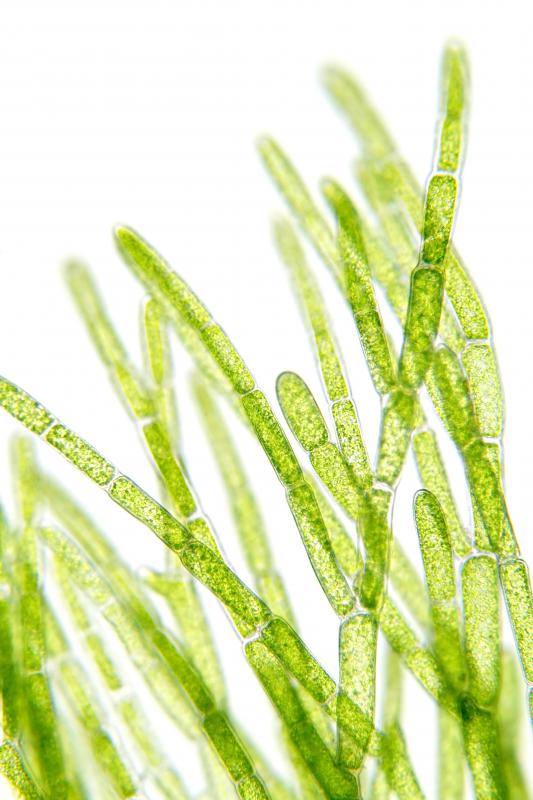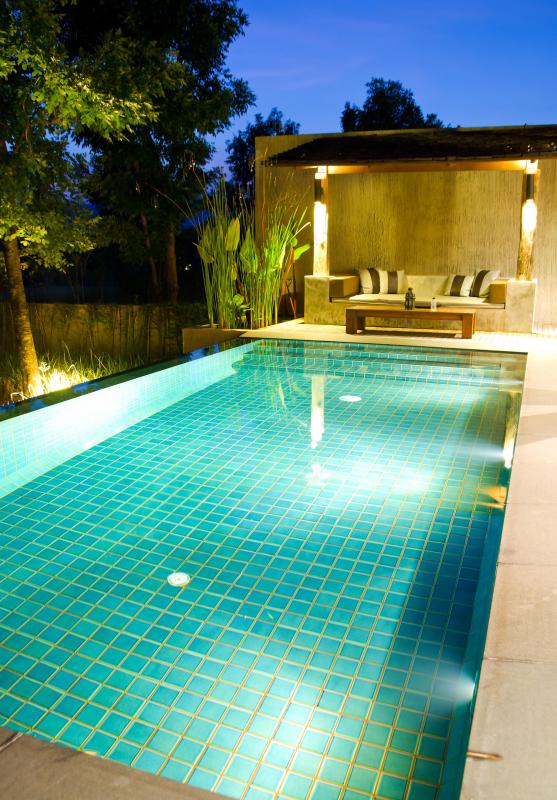At WiseGEEK, we're committed to delivering accurate, trustworthy information. Our expert-authored content is rigorously fact-checked and sourced from credible authorities. Discover how we uphold the highest standards in providing you with reliable knowledge.
How do I get Rid of Pool Algae?
When it comes to swimming pool problems, pool algae seems to be the most common. Depending on the type of algae, clearing up your pool can either be very simple or very difficult. The most common methods of getting rid of pool algae involve brushing, vacuuming, and adding chemicals to the water. Many experts agree that the best way to deal with pool algae is to prevent it from developing in the first place. In addition to turning your pool water into a disgusting green color, it can also allow harmful micro-organisms to breed in the water, and it can make surfaces quite slippery.
As soon as you begin to notice any algae in your pool, the first step is to brush it off the pool walls and floor. Green algae is the easiest to brush off, yellow algae is a little more difficult, and black algae is the hardest and may require daily scrubbing and brushing. Pools without vinyl liners, such as many in-ground pools, can be scrubbed with a steel bristle brush. If your pool has a liner, like above ground pools, you will want to use a nylon bristle pool brush to avoid damaging it.

Before you begin brushing the pool, it is important to skim the top to remove any free-floating pool algae or debris. Next, use the pool brush to scrub all surfaces of the pool, even if there is no algae visible in certain spots. After the pool has been thoroughly scrubbed to loosen debris, you should let it settle for no longer than 30 minutes. This can then be vacuumed up, and the pool algae should be disposed of in the trash away from the pool.

Shocking your pool is the next step. Chemical pool shock can be purchased at large department and pool supply stores, and it comes in a variety of forms, the most common being liquid and powder. Choose your pool shock depending on the type of filter you have, and whether your pool is chlorinated or non-chlorinated.
Following the manufacturer's instructions, add the proper amount of shock treatment to the pool water. The amount you must add typically depends on the amount of water that your pool holds. If you have a vinyl liner, you may want to mix the material with water before you add it to the pool to prevent any discoloration or bleaching. After the shock treatment has been added, circulate it around the pool with a pool skimmer or similar tool. At this point, you may want to brush the pool again.

To save yourself the headache and frustration of dealing with pool algae, there are a few things that you can do to prevent it from starting in the first place. First, start a weekly shock treatment regimen to kill off any new colonies that may be starting, and maintain the proper chemical balances. Also, keep your pool clean and free of debris such as sticks and leaves, and store toys, skimmers, and pool covers carefully when not in use.
AS FEATURED ON:
AS FEATURED ON:















Discuss this Article
Post your comments